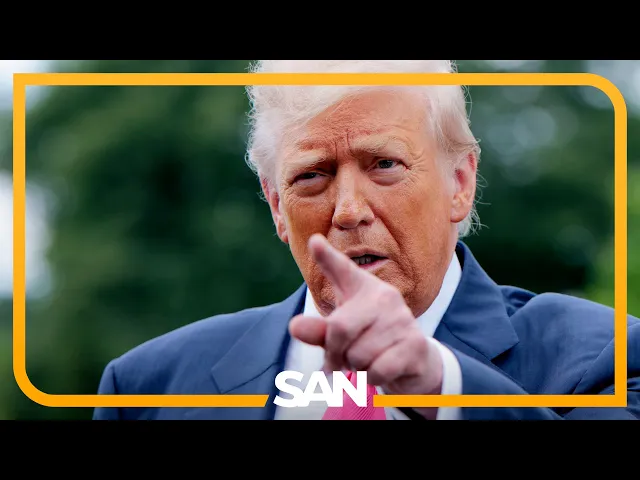Trump preparing executive order to target ‘woke’ AI: Report

Trump takes aim at 'woke' AI movement
The collision of politics and artificial intelligence rarely makes for dull headlines, and former President Donald Trump's recent hints about his plans for the AI industry are no exception. Trump is reportedly preparing an executive order targeting what his team characterizes as "woke AI" should he return to office, signaling yet another battlefront in America's ongoing culture wars. This potential policy shift raises important questions about government oversight of AI development and the delicate balance between regulation and innovation.
Key elements of Trump's reported AI strategy:
-
Targeting "woke AI bias" – Trump's team is concerned about perceived political bias in AI systems, particularly those developed by major tech companies they view as left-leaning.
-
Government procurement focus – The planned executive order would likely target AI systems purchased by federal agencies, using the government's buying power to shape industry standards.
-
Leveraging existing contracts – Rather than creating new regulatory frameworks, Trump's approach appears to focus on influencing AI development through federal purchasing requirements.
-
Streamlining AI innovation – The plan reportedly includes measures to reduce regulatory barriers for AI startups and established companies developing systems that meet certain criteria.
The politics of AI development
The most significant aspect of this reported initiative is how it represents a deepening politicization of technology policy. While concerns about bias in AI systems are legitimate across the political spectrum, Trump's framing of the issue as specifically targeting "woke" elements suggests a partisan approach to what many technologists consider complex technical challenges requiring nuanced solutions.
This matters tremendously in our current environment because AI development is accelerating at a pace that already outstrips regulatory frameworks. The global AI market is projected to reach $190.61 billion by 2025, and decisions made in the next presidential term will likely shape the technology's trajectory for decades to come. By positioning AI oversight as part of a cultural battle rather than a technical challenge, we risk developing policies that address perceived political grievances instead of the actual risks and opportunities presented by these powerful systems.
Balancing innovation with responsible development
What's missing from Trump's reported approach—and indeed from much of the current political discourse around AI—is a recognition that bias in AI isn't simply a matter of political viewpoint. Research from MIT, Stanford, and other institutions consistently shows that
Recent Videos
How To Earn MONEY With Images (No Bullsh*t)
Smart earnings from your image collection In today's digital economy, passive income streams have become increasingly accessible to creators with various skill sets. A recent YouTube video cuts through the hype to explore legitimate ways photographers, designers, and even casual smartphone users can monetize their image collections. The strategies outlined don't rely on unrealistic promises or complicated schemes—instead, they focus on established marketplaces with proven revenue potential for image creators. Key Points Stock photography platforms like Shutterstock, Adobe Stock, and Getty Images remain viable income sources when you understand their specific requirements and optimize your submissions accordingly. Specialized marketplaces focusing...
Oct 3, 2025New SHAPE SHIFTING AI Robot Is Freaking People Out
Liquid robots will change everything In the quiet labs of Carnegie Mellon University, scientists have created something that feels plucked from science fiction—a magnetic slime robot that can transform between liquid and solid states, slipping through tight spaces before reassembling on the other side. This technology, showcased in a recent YouTube video, represents a significant leap beyond traditional robotics into a realm where machines mimic not just animal movements, but their fundamental physical properties. While the internet might be buzzing with dystopian concerns about "shape-shifting terminators," the reality offers far more promising applications that could revolutionize medicine, rescue operations, and...
Oct 3, 2025How To Do Homeless AI Tiktok Trend (Tiktok Homeless AI Tutorial)
AI homeless trend raises ethical concerns In an era where social media trends evolve faster than we can comprehend them, TikTok's "homeless AI" trend has sparked both creative engagement and serious ethical questions. The trend, which involves using AI to transform ordinary photos into images depicting homelessness, has rapidly gained traction across the platform, with creators eagerly jumping on board to showcase their digital transformations. While the technical process is relatively straightforward, the implications of digitally "becoming homeless" for entertainment deserve careful consideration. The video tutorial provides a step-by-step guide on creating these AI-generated images, explaining how users can transform...
